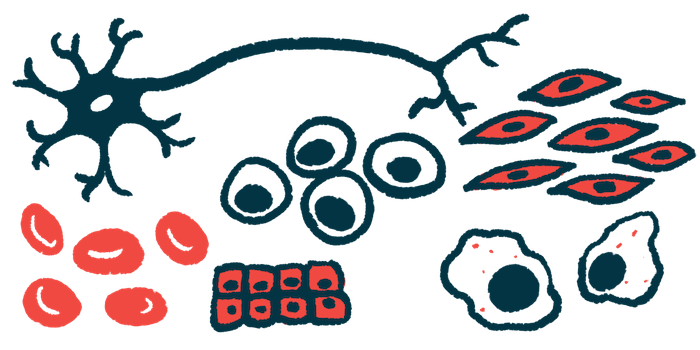Initiative Makes Stem Cell Lines Available for Research Worldwide
Web portal marks new phase in the iPSC Neurodegenerative Disease Initiative
Written by |

A number of stem cell lines developed to better understand how certain genetic factors might contribute to amyotrophic lateral sclerosis (ALS) and other neurodegenerative diseases is now available to scientists worldwide.
The cell lines were engineered by researchers at the National Institutes of Health Center for Alzheimer’s and Related Dementias (NIH CARD) to carry mutations associated with specific neurodegenerative diseases.
Stem cell lines currently available contain mutations linked to ALS, frontotemporal dementia, Alzheimer’s disease and Parkinson’s disease. They now can be ordered through a web portal run by the Jackson Laboratory.
The launch of the portal marks a new phase in the iPSC Neurodegenerative Disease Initiative (iNDI), a project launched in 2021 to promote stem-cell based neurodegenerative disease research. iNDI is a collaborative effort between NIH CARD, Jackson Laboratory, and the Chan Zuckerberg Initiative.
With advances in laboratory techniques, genetic contributions to neurodegenerative diseases have been recognized and understood more often. Hundreds of genetic mutations have been linked to this group of disorders.
“The goal of the iPSC iNDI is to help scientists study how these variants may cause nervous system tissue to degenerate and translate their findings into new treatments,” according to a National Institute on Aging press release.
Induced pluripotent stem cells, or iPSCs, are one way of studying genetic contributions to disease. iPSCs are produced by collecting mature cells — usually cells isolated from blood or skin samples — and reprogramming them into stem cells, which have the capacity to differentiate into virtually any other cell type in the body under the right conditions.
When generated from an individual patient, the stem cells will carry the same disease-causing mutations the patient does. Using specific chemicals, the stem cells can mature into nerve cells or other cell types of interest, and then can be studied in the lab.
However, making sense of findings from this type of research can be challenging, as other background genetic factors may differ between patients and also affect the cells’ behavior. This can obscure the true effects of a particular mutation.
iNDI aimed to overcome that challenge by generating a single, standard stem cell line from healthy human cells without any mutation linked to neurodegeneration. That cell line then was split into multiple lines, each genetically engineered to carry a disease-related mutation, lacking the gene entirely, or tagging the mutated gene with a fluorescent marker that allows it to be tracked in cells.
For each mutation, there also is a cell line carrying the mutation in only one chromosome and another carrying it in the two chromosomes where the gene resides.
In this way, the lines will be identical in every way except for the mutation or other modification of interest, allowing the true effects of these variants to be studied more easily in the lab.
The iNDI website states that new cell lines will continue to be added to the repository in the coming months. Ultimately, it plans to generate lines for 132 mutations across 72 genes, 28 of which are associated with ALS or frontotemporal dementia.






